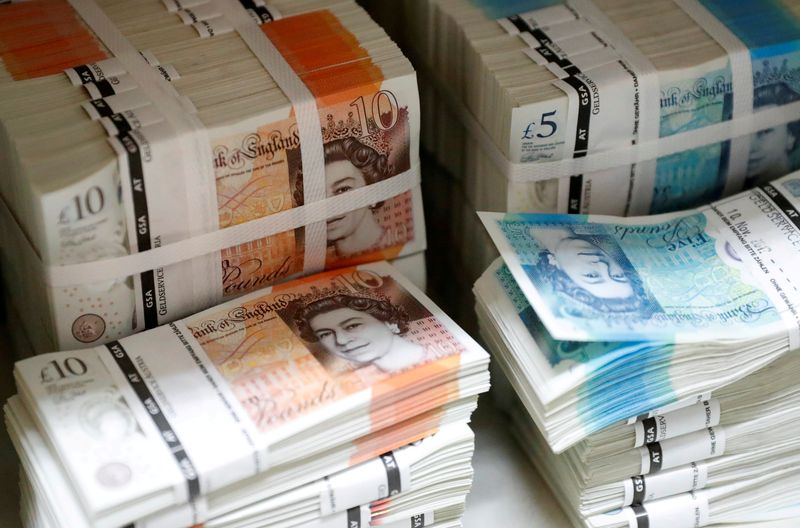By Amanda Cooper
LONDON (Reuters) - The pound headed for its biggest daily gain against the dollar in two weeks on Tuesday, boosted by a modest return of risk appetite after an aborted mutiny by mercenaries in Russia at the weekend briefly threatened to upend markets.
Investors are still trying to determine how Moscow will respond to the aborted uprising by the heavily armed Wagner Group over the weekend, bringing most of the focus back to the global economy and the outlook for interest rates, for now.
Sterling was last up 0.14% against the dollar at, on course for its largest one-day rise since June 16. Against the euro, sterling was flat at 85.80 pence.
The Bank of England raised rates on June 22 by 50 basis points to 5%, in light of evidence that the inflation of the last two years is becoming more entrenched in the economy and therefore harder to fight.
The pound is closing in on a gain of 5.4% versus the dollar in the first six months of this year - which would mark its best first-half performance since 2017, when it rose 5.65%.
Analysts say that at some point, higher interest rates and a cost-of-living crisis will take their toll on the UK economy, which will eventually weigh on the currency.
"Interest rates are good for a currency as long as the economy is able to withstand those higher rates. The question is at what point will higher rates have more of an negative impact on growth in the UK? That will come, as we all know, with monetary policy tightening," MUFG currency strategist Lee Hardman said.
"The reality is the economy could prove more resilient than expected for maybe longer than people are anticipating, but eventually there will be signs of the economy cracking as those higher rates start to hit," he said.
Hardman added that sterling could get as high as $1.30-1.35 against the dollar before reversing as the economy becomes increasingly strained.
GREAT BRITISH FLOWS
That said, the prospect of the BoE raising interest rates by a lot more than many had previously expected, and keeping them higher for longer, has encouraged flows of capital into sterling this year.
Data from the Commodity Futures Trading Commission on Friday showed the largest increase in bets on sterling in over 18 months in the week to June 20, ahead of UK consumer price inflation figures and the BoE decision.
Non-commercial net holdings - essentially speculators - hold a long pound position worth $3.7 billion, having added to their bullish holdings by a whopping 592% to a five-year high.
"Almost certainly, the (Monetary Policy Committee) will raise rates again in August. The only question is whether it is by 0.25% or 0.5%, which will depend on the wage and inflation numbers released in the meantime," Rupert Thompson, who is chief economist at asset manager Kingswood, said in a note on Monday.

In terms of where rates peak, money markets show traders believe that figure to be around 6% by year-end, which would be the highest since January 2001, and that it will remain there for another six months.
"Once again, this looks on the high side but this is said with some humility," Thompson said.